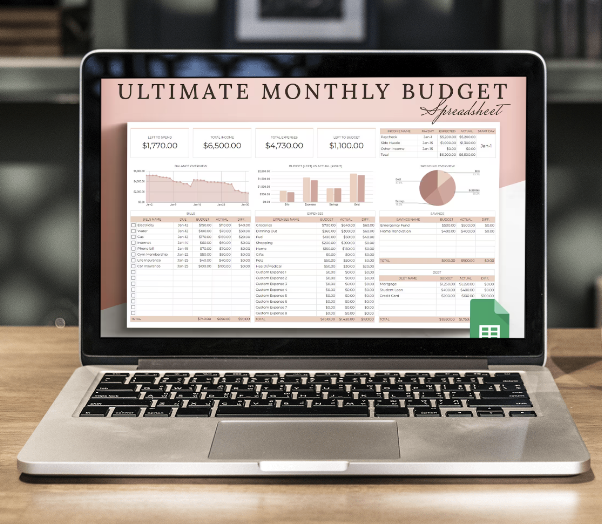By Mandy Froelich / Black Hills Financial Planning
Due to the pandemic, most people have been forced to tighten their belt buckles and make do with less. It’s nothing to be ashamed of, as we have all been affected by the global catastrophe. That said, there are dozens of ways each of us can save more money. Like everything finance-related, it requires some planning ahead. However, these simple and rewarding habits will help your bank balance grow.
20 Ways to Save Money on Food
- Cook your meals at home.
- Shop with a list.
- Use a meal planning service to plan your meals.
- Eat leftovers for lunches or pack a lunch from home.
- Cook all your meals once a week or once a month to make eating at home easier.
- Use coupons and shop the sales at your grocery store.
- Save money on groceries. Try shopping at a warehouse club or discount grocery store to find lower prices.
- Shop at more than one store each week to find the lowest prices for each item.
- Shop at multi-cultural grocery stores to find the best prices on spices and specialty foods.
- Buy in bulk on items that you use a lot.
- Don’t buy individually packaged items. Buy larger items and package them yourself.
- Pay attention to price-per-ounce labels at your grocery store. Although you usually save by buying more, the largest size may not always be the cheapest.
- Use coupons to help you save on eating out.
- Take advantage of frequent customer discount programs at your favorite restaurants.
- Search for deals on restaurants through sites such as Groupon to get big discounts on places to eat.
- Join a cooking co-op. You can either cook and exchange meals or take turns cooking a few nights a week.
- Visit the farmer’s market to find better deals on produce. If you go to the area that caters to restaurants and requires larger orders, you can save even more. Just have neighbors or friends go in on the deals with you.
- Invest in a freezer so you can buy more food in bulk.
- Avoid shopping for just one or two items at a time since this often leads to more impulse purchases.
- Try store brands to see if you can save. It takes trial and error, but you should be able to find products that can help you save money.

Save Money on Your Monthly Bills
- Lower your thermostat by up to 5 degrees in the winter and raise it by up to 5 degrees in the summer to save money.
- Winterize your home by sealing off drafts and applying plastic to your windows.
- Wrap your water heater in a water heater blanket.
- Install a low-flow showerhead and toilet to save on water costs.
- Look for a cheaper cell phone plan. Consider moving to a month-to-month plan, especially if you are single.
- Consider cutting cable and looking for cheap or free alternatives to help you save on how much you pay for cable.
- Install a programmable thermostat to save money on heating and cooling when you are not home.
- If you are buying new appliances, pay attention to energy costs and usage.
- Consider installing solar panels and look for discounts and community programs to help you pay for them.
- Increase your insurance deductibles and set aside money to cover it when you do.
- Shop for new insurance every few years. Insurance companies will offer lower rates to new subscribers.
- Use available discounts through your professional associations, alumni associations and any other ways you may qualify to save on insurance costs.
- Use the in-network providers on your health insurance.
- Get written approval before you have significant health procedures completed.
- Watch your weight and exercise regularly to help you save on medical costs now and in the future.
- Consider getting a roommate to save money on rent.
- Buy your home when you are ready to help you save on taxes and build equity.
- Sign up for automatic payments to avoid monthly late fees.
- Cancel your gym membership and work out at home or go jogging. There are exercise subscriptions that offer cheaper workout options at home. Or switch to a barebones gym membership that is less expensive.
- Cancel your landline if you still have one.

Save Money on Entertainment Costs
- Go to the library to find books and movies instead of buying them.
- Wait and watch a movie at home to save money.
- Take advantage of the second-run theaters to save money on movie tickets.
- Consider renting games that you will only play once instead of buying them.
- Go to the free movies on the lawn offered in your city park. Even if the cities charge, it is usually cheaper than going to a theater and offers a more memorable event.
- Visit the local festivals put on by your city or nearby cities.
- Attend free local concerts.
- Go hiking. Take advantage of the local greenways and nearby hiking trails to stay active and find something fun to do.
- Plan a camping vacation instead of a resort vacation. You can often plan a camping trip for much less, especially if you have all of the gear.
- Plan a night in with friends instead of going out.
- Play a board game.
- Find ways to monetize the things you love to do. This way you can make money off of your hobbies. You may create a vlog about your favorite crafts or video games or sell the crafts that you do.
- Meditate. Take time to be still and enjoy the world around you. Visit a park or nature preserve or sit outside on your back porch and meditate.
- Go window shopping. It can be fun to visit stores and look at different items, but this only works if you know that you will not give in to the temptation to buy something.
- Volunteer. It can be a lot of fun to volunteer at a local community center, to build homes or as a Big Brother or Big Sister. This is also a great way to meet people.
- Take a community class to learn a skill that can help you save money. You may want to take cooking classes, basic sewing or basic auto repair classes.
- Take advantage of free drinks night at your favorite clubs.
- Visit free museums in your area or when you travel.
- Plan staycations where you enjoy the local area.
- Work part time at your local stadium to get discounts on sporting events.

Save Money on Shopping
- Only purchase things that are on sale, especially big-ticket items.
- Take advantage of any employee discounts that you can.
- Use customer loyalty cards to save money and earn points on additional purchases.
- Shop the clearance racks whenever you are clothes shopping.
- Wait 24 hours on any purchase over $100.
- Shop with cash to help you prevent overspending or using your credit card.
- Consider doing a spending fast every few months to stop all unnecessary money and to put the money into a savings account at your bank.
- Know the sales cycle, so you know the best time to purchase every item.
- Consider shopping at consignment shops and thrift stores to save money.
- Use Craigslist or eBay to find discounts on items.
- Subscribe to deal sites such as Slickdeals so you that you are notified about great deals on things that you need.
- Pay cash for everything you buy. You will save by not using your credit cards and paying the interest each month.
- Don’t shop when you are stressed or upset as a way to make yourself feel better.
- Reward yourself when you come in under budget on your weekly shopping trips.
- Plan for your big purchases and set aside money until you can pay for it in cash. Things like a television, a new computer, and new furniture all fit under this category.
- Sign up for subscriptions that ship things you need to your home each month. These are often cheaper, and they keep you from going to the store.
- Go shopping at yard sales.
- Barter for goods and services that you may need to save money.
- Follow the saying: “Use it up, make do, or do without.” Make sure that you need the item before you purchase it.
- Do your research. There are many times when it makes more sense to buy the highest quality rather than the cheapest, especially when you buy things that need to last like furniture or appliances.

Save Money on the Way You Handle Your Finances
- Set up a budget.
- Stop paying interest on your credit cards. Work on getting out of debt right away.
- Transfer your balances to zero-interest credit cards while you work on getting out of debt.
- Set up an automatic payment or transfer to get discounts on your interest rates for your car loan or mortgage, even if it means switching banks.
- Shop for your car loan through your local credit union or bank to see if you can save on interest.
- Find a free checking account that does not charge for transfers, ATM use, or debit charges.
- Don’t have a credit card that has a fee. Cancel old credit cards that are paid off that charge a fee, and only open new accounts if they do not charge a late fee.
- Do not pay any late fees on your accounts. Be sure to pay bills on time. Set up a reminder in your calendar to make sure you pay on time.
- Balance your checkbook. This will prevent you from overdrawing your account and save you money on overdraft charges and returned check fees.
- Find a budgeting system that works well for you. This may be using cash for some categories or finding an app you can update on the go. It may take some research, but this will make saving money easier because you will know when to stop spending.
- Take advantage of your employer’s match for your retirement savings — this essentially free money you can put toward retirement.
- Use cash only. This helps you stick to your budget because you know to stop spending when you run out. Plus, people tend to pay more attention to prices when carrying cash.
- Fix your credit score by getting current on your payments and clearing up your debt. This can save you money by lowering your interest rate on major loans like your mortgage.
- Save up a down payment, so you do not need to pay for private mortgage insurance (PMI) on your mortgage.
- Adjust your withholdings so that you don’t withhold too much, making extra money available to you throughout the year.
- Set up an emergency fund, so you do not need to use your credit cards when unexpected expenses pop up.
- Use an online savings account to qualify for higher interest rates. Consider CDs or other savings tools for longer-term savings. Compare different types of accounts to make the most out of your money.
- Protect your savings so that it continues to grow instead of spending it each month.
- Stop using your credit cards completely, especially if you do not tend to pay them off in full each month.
- If you do pay off your balance each month, use a cash-back rewards card to earn a little extra each month.
h/t The Balance
Discover more from Black Hills Financial Planning
Subscribe to get the latest posts sent to your email.







